
 Flash News
Flash News
Hostage taking in Tirana, 40-year-old man forcibly taken into car
Car catches fire in Tirana
SPAK announces the claim for "Sterilization", seeks 10-year sentences for Klodian Rjepaj and Ilir Rrapaj
Gunfight at the Institute, 7 people involved, one of them arrested
Trial for Martin Can's murder postponed, Përlleshaj does not appear at the hearing
The warned cyberattack on Tirana Municipality brings back security concerns
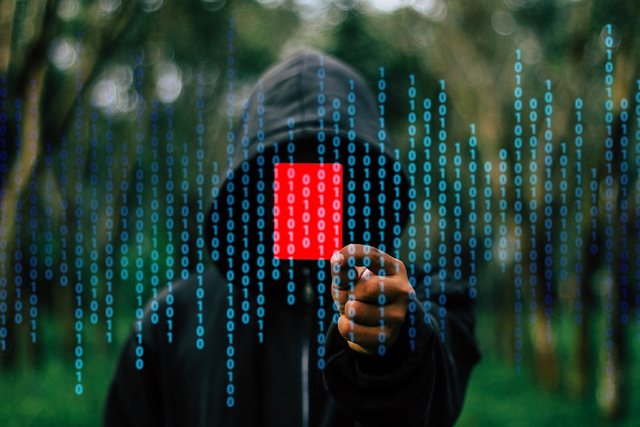
In November last year, experts from the National Cyber Security Authority, AKSK, inspected the electronic systems of the Municipality of Tirana and found three weak points. Through an email, ASKS informed the municipality that three frameworks needed to be updated, but the warnings fell on deaf ears.
“Measures were not taken and the attack happened,” Igli Tafa, director of ASKS, told BIRN. “In the cybersecurity sector, measures are usually taken after you have scored a goal,” he added.
The Municipality of Tirana faced a cyberattack on June 20, almost three years after the country faced a wave of similar attacks that disabled the government's digital infrastructure and caused a massive information leak to the same group identified as "Homeland Justice" on Instagram, behind which Iranian hackers are suspected.
In a message, the group announced that it had hacked the Tirana Municipality website and disabled 55 services provided by the municipality, including those for children and tax payments. Along with videos of them deleting data files, a list of passwords such as 25Korrik2016 or Anakonda@123 was also published.
For cybersecurity experts, this element alone shows how frivolously data security has been treated by the Municipality of Tirana.
“They show a total lack of basic data protection practices,” said Besmir Semanaj, a cybersecurity expert, adding that the fact that passwords were repeated and stored in such a format demonstrated “complete failure” and a wake-up call to reform security practices in public administration.
Semanaj added that public institutions had not recovered from the cyberattacks of 2022, despite the damage caused and ongoing investments to increase cybersecurity.
"The problem is not just a lack of equipment or technology - it is deep and structural," Semanaj said, adding that a strategy to seriously address cybersecurity is missing.
Tirana Municipality did not respond to a request for comment from BIRN, but acting mayor Anuela Ristani said in a statement that the latest attack was highly sophisticated and one of 15 attacks orchestrated over the past six months.
"All data is intact and there is no loss of information," Ristani said, claiming that measures were being taken.
Cyber attacks
AKSK head Igli Tafa also told BIRN that the attack on Tirana Municipality servers was much more sophisticated than the attacks in 2022. He said that this time the hackers had used a genuine (original) drive licensed from an American company.
Ky drive ishte përdorur sipas tij për të penetruar sistemin dhe ishte njohur nga Microsoft si genuin, duke i lejuar hyrjen. Pëmes aksesit, hakerat kanë ndërhyrë më pas në sistem dhe kanë bërë fikjen e tij. Sulmi rrëzoi mbi 50 shërbime të Bashkisë së Tiranës dhe nxorri jashtë funskionit serverat dhe mbi 2726 kompjutera.
Tafa tha gjithashtu se AKSK po ndihmonte Bashkinë në rikuperimin e shërbimeve dhe i konsideroi dëmet jo shumë të mëdha. Njëzetedy shërbime, përfshi atë të Tatimeve u kthyen në punë pas ndërhyrjes, ndërkohë që po punohet me pjesën tjetër të shërbimeve.
Sipas Tafës, numri i kompjuterëve që do të verifikohej ishte më i madh, por kjo do u lihej në dorë punonjësve të IT të Bashkisë.
Erion Demiri, inxhinier kibernetik tha se ajo që kishte ndodhur në Bashkinë e Tiranës ishte e ndryshme nga viti 2022, por ai nuk e konsideron sulmin shumë të sofistikuar. Ai tha se grupi që mori përsipër sulmin, kishte postuar dhe më pas fshirë informacion, që e bënin atë të dukej jo aq serioz.
“Bënë një gabim tjetër, postuan një foto me fjalëkalime që u lexonin dhe më pas e fshinë. Nuk janë gabime qe i bën një grup kaq i rrezikshëm,” vlerëson Demiri, i cili e sheh me dyshim edhe pasjen e një llogarie në Telegram. “Vetëm këta kanë”, tha ai duke iu referuar grupeve të ngjashme.
Demiri megjithatë tha se problemi këtë herë dukej i lokalizuar në bashkinë e Tiranës dhe sulmi nuk kishte prekur infrastrukturën kritike.
“Nuk janë infrastrukturat e rëndësishme dhe kritike. AKSK ka bërë përgjigjen dhe i ka ndihmuar, por nuk kanë qenë në kontrollin e tyre,” tha ai, duke sqaruar se në këtë rast ishte përgjegjës sektori IT në Bashkinë e Tiranës.
Investimet nuk mjaftojnë
E gjendur përballë hakerimit dhe rrjedhjes masive të të dhënave në vitin 2022, autoritetet në Shqipëri reaguan duke investuar miliona euro në sigurinë kibenetike. Institucionet publike, që klasifikohen me infrastrukturë kritike, kompanitë publike të energjetikës dhe bankat i rritën disa herë investimet në këtë fushë.
Tafa nga ASKS i tha BIRN se institucionet publike kanë investuar më shumë se 35 milionë dollarë, bankat i rritën investimet në 32 milionë dollarë dhe kompanitë e energjetikës kanë investuar rreth 10 milionë dollarë për sigurinë e tyre kibernetike.
Por sipas tij, investimet nuk e zgjidhin përfundimisht problemin.
“Ka pasur investime, por investimet në sigurinë kibernetike përmirësojnë mbrojtjen, por rreziku nuk bëhet asnjëherë zero,” tha ai, duke shtuar se investimet kishin funksionuar dhe në gjashtë muajt e parë të vitit ishin zprapsur 14 sulme në institucione të ndryshme.
Megjithatë, Tafa theksoi se jashtë asaj që shihej si infrastrukturë kritike shtetërore dhe bankave, kishte një mori institucionesh me dobësi në mbrojtje, të cilave u mungon buxheti apo kanë mungesë burimesh njerëzore. Ai tha se ky ishte një nga fokuset e AKSK-së, që përfshinte trajnimin e punonjësve, përgatitjen e studentëve dhe deri hapjen e një akademie për këtë fushë.
Semanaj, on the other hand, insists that the approach is not appropriate and the measures taken are not enough.
"What should really worry us is not just their [hackers'] persistence, but our inability to prevent and cope with them," he said, referring to the latest attack.
He said that while reactions were immediate and AKSK announced the creation of a task force and recovery efforts, this was a model that did not guarantee protection.
"But this is a familiar pattern - reacting only after the damage has been done," he criticized.
Semanaj says that the country lacks a clear and comprehensive strategy and that this requires that cybersecurity be treated with maximum seriousness.
“First, cybersecurity in Albania continues to be seen as a technical issue that falls to a small office to deal with after the incident. In fact, it should be an integral part of any decision-making at the state level,” Semanaj proposed.
According to him, in the absence of a clear and implemented strategy, "any effort to improve the situation remains fragmented and ineffective."/BIRN
Latest news



NATO's defense plan, what will change for Albania?
2025-06-25 16:42:07
Bayern loans Albanian talent to German team
2025-06-25 16:32:00
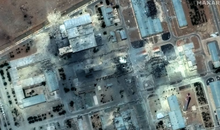
Kremlin: US and Iran disagree on damage caused by attacks
2025-06-25 16:13:55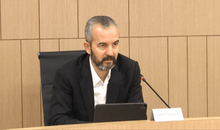
11 maji/ KQZ vulos rezultatin, u jep mandatin deputetëve për 4 qarqe të vendit
2025-06-25 16:00:32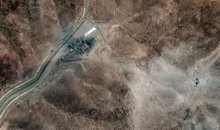
Iran: Nuclear facilities suffered severe damage from US airstrike
2025-06-25 15:49:38
Hostage taking in Tirana, 40-year-old man forcibly taken into car
2025-06-25 15:35:51
Kosovo/ The constitution of the Assembly fails for the 37th time
2025-06-25 15:24:28
Car catches fire in Tirana
2025-06-25 15:06:53
5 super healthy foods you should add to your diet
2025-06-25 14:57:48
TikTok returns to Albania, one-year ban quietly lifted after three months
2025-06-25 14:49:14


Gunfight at the Institute, 7 people involved, one of them arrested
2025-06-25 14:21:10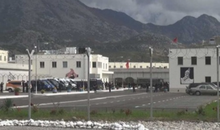
Convict dies in Lezha prison
2025-06-25 14:08:16

ACE Closes Filma24, the Movie Piracy Giant in Albania
2025-06-25 13:44:37

SPAK postpones the investigation against Ahmetaj for the fourth time
2025-06-25 13:12:42

Communication services in Albania cost more than the EU average
2025-06-25 12:55:50
How to choose the right perfume scent according to your personality
2025-06-25 12:44:36





Today is the 37th attempt to constitute the Assembly.
2025-06-25 11:34:23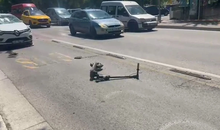
Accident in Tirana, taxi hits two children with a wheelchair
2025-06-25 11:19:05
Some reasons why gossip isn't as toxic as you think
2025-06-25 11:07:51

Selling dope in nightclubs, 33-year-old arrested in Tirana
2025-06-25 10:45:25
The Supreme Court rejects the appeal of Jamarbër Malltez
2025-06-25 10:26:58
The warned cyberattack on Tirana Municipality brings back security concerns
2025-06-25 10:19:43
Iranian parliament votes to suspend cooperation with UN nuclear watchdog
2025-06-25 10:03:02
Bosnian fraudster arrested, wanted in Germany
2025-06-25 09:53:10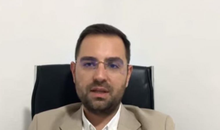
May 11/ Nuri: The vote 'died' before it was cast in the box
2025-06-25 09:42:02
Men with big bellies are at risk of suffering from this problem
2025-06-25 09:37:26

Today, around 28,000 9th grade students are taking the math exam.
2025-06-25 09:19:14
NATO arms itself against potential threats from Russia
2025-06-25 09:03:09
Tourists don't come, Albanians leave!
2025-06-25 08:59:08
TNT explosion in Vlora
2025-06-25 08:38:41
Tourism/ Kosovo "flees" after visa waiver, Poles and Spaniards "get upset"
2025-06-25 08:22:43
Horoscope, what do the stars have in store for you today?
2025-06-25 08:09:54
Ditë me diell, parashikimi i motit, si do të ndryshojnë temperaturat
2025-06-25 07:59:33
Morning Post/ In 2 lines: What mattered yesterday in Albania
2025-06-25 07:45:27



Earthquake tremors felt again in Tirana
2025-06-24 22:11:53

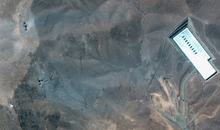
US intelligence: Attacks on Iran did not destroy nuclear plants
2025-06-24 21:30:31
Accident on the Fier-Cekan axis, 3 injured
2025-06-24 21:16:32



Cancer season, what is expected to happen for each zodiac sign
2025-06-24 20:15:54


After ceasefire, Iranian airspace partially reopens to international flights
2025-06-24 19:47:10
Oil prices fall after Israel-Iran ceasefire reached
2025-06-24 19:26:52


Will Iran participate in the 2026 World Cup being held in the USA?
2025-06-24 18:46:36
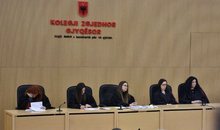

BIRN: Veliaj hires British law firm for defense! Huge sum revealed
2025-06-24 18:20:16




Accident on "Durrës Road" in Tirana, 3 cars collide
2025-06-24 16:52:05

GJKKO sentences Dritan Lleshi to 8 months in prison for unlawful influence
2025-06-24 16:29:29
Former head of the DP branch in Vlora elected head of the Cadastre
2025-06-24 16:19:22

What does facial yoga offer and why is it considered an elixir of youth?
2025-06-24 16:07:40

"Temperatures will reach 40°C"/ AKMC appeals to citizens: Be careful!
2025-06-24 15:36:18


Second outbreak of plague in Korça, over 190 heads of cattle destroyed
2025-06-24 14:57:32
How often should you reapply sunscreen?
2025-06-24 14:44:29
Hitting OSHEE employee, 38-year-old arrested in Tirana
2025-06-24 14:34:37
Albania less competitive in 2024, export businesses fall
2025-06-24 14:20:32

Partial local elections, Berisha: With Edi Rama there are only farces
2025-06-24 14:03:50
Ceasefire Violation, Trump Warns Iran and Israel: Do Not Attack
2025-06-24 13:47:21
Berisha: Fox News slammed Edi Rama as Europe's Ramaduro
2025-06-24 13:38:03
What happened to him? Louis Ailey ends up in the hospital
2025-06-24 13:29:24

Accident in Divjaka, 15-year-old dies while riding a motorcycle
2025-06-24 13:09:38
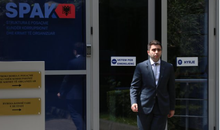
SPAK takes the head of the Procurement Commission as a defendant
2025-06-24 12:55:21

